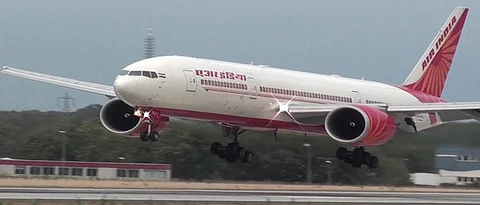

The Bombay High Court allowed all airlines to fill the middle seat in planes which was hitherto to be kept vacant because of the COVID-19 pandemic. The High Court delivered this revolutionary verdict when a team of expert doctors concurred that the sinister virus was not spread solely by the touch of an infected person but by his droplets which fell through sneezing, coughing, spitting or merely talking.
A division bench of Justices SJ Kathawalla and SP Tavade appeared convinced on Friday, June 5 that if both infected and non-infected passengers were covered with protective plastic personal gowns, face masks and gloves, the spread of the COVID-19 could be curtailed if not eliminated altogether.
This controversial verdict overrules the circular of the Director-General of Civil Aviation (DGCA) keeping the middle seat in all planes empty. But then, this would push up the cost of air travel multiple times as airlines seek to recoup their losses.
The bench passed the interim (temporary) order after hearing lengthy arguments advanced by the petitioner who is a commander in Air-India, Deven Kanani, who alleged in his petition that the national carrier was not observing the mandatory directions imposed by the DGCA in its March 23 circular which was superseded by its March 31 circular directing that the middle seat be kept vacant.
The court heard the reply filed by way of separate affidavits filed by Dr Randeep Guleria, Dr Balram Bhargava and Dr Naresh Trehan. This expert committee was headed by the secretary of the ministry of civil aviation.
This high-powered expert committee confirmed what has already been stated by medical experts throughout the globe that the COVID-19 virus spreads exponentially only through invisible droplets of an infected person. The non-infected person touches his eyes or mouth, thereby getting infected. This is somewhat similar to the common cold, which also spreads through droplets of an infected person.
Significantly, this deadly virus was “imported” into India through aircraft carrying infected passengers from Wuhan or other countries which had already been ravaged by the pandemic. And like the courts which cannot be closed indefinitely, the international and domestic airports also cannot be shut indefinitely.
The two-judge bench headed by Justice SJ Kathawalla was forced to issue these interim orders due to the pressure of high demand by air travellers, notwithstanding the risk to which air travellers are exposed.
Interestingly, several other airlines intervened in the above writ petition filed by Air India pilot Kanani. What emerged was that 248 passengers out of 59,000 who had been evicted by the Vande Bharat evacuation mission had tested positive for coronavirus. Forty-five cabin crew and 13 cockpit staff had tested positive, the judges were told.
The judges have a delicate task of balancing the right to life under Article 21 of all Indian citizens versus the contrarian duty of the State to regulate air travel due to the pandemic by curtailing the freedom to travel abroad of all Indian citizens. This is why the judges sought the responses of the expert committee of doctors on how the virus can be transmitted.
Earlier, the DGCA had clarified that if the airlines could not keep the middle seat vacant due to high loads, all the airlines had to furnish protective suits with masks for all air travellers. The Union Ministry of civil aviation had asked the DGCA not to look at commercial interests alone but to keep the need to prevent the virus from spreading uppermost in its mind.
(Dr Olav Albuquerque is a senior journalist-cum-lawyer of the Bombay High Court. He holds MSc., LLM and PhD in Law.)
